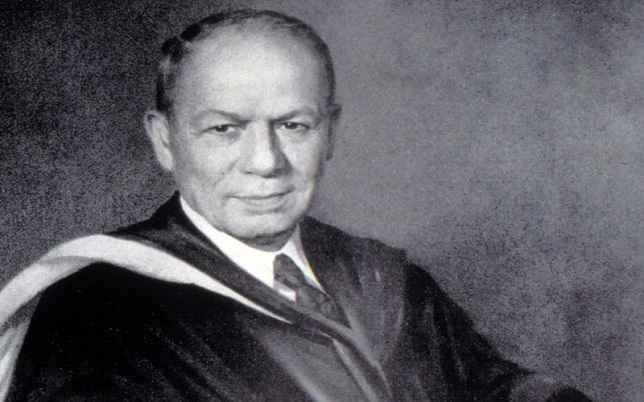Philip Khuri Hitti (1886 – 1978) was a Lebanese-American professor and scholar at Princeton and Harvard University, and authority on Arab and Middle Eastern history, Islam, and Semitic languages. He almost single-handedly created the discipline of Arabic studies in the United States.
Philip K. Hitti while describing Islamic influence during his days said:
“Every eighth person in our world today is a follower of Muhammad, and the Moslem call to prayer rings out through most of the twenty-four hours of the day, encircling the larger portion of the globe in its warm belt.”
Incredible Simplicity of Prophet Muhammad
Describing the incredible simplicity of Prophet Muhammad, Philip K. Hitti says:
“Even in the height of his glory Muhammad led, as in his days of obscurity, an unpretentious life in one of those clay houses consisting, as do all old-fashioned houses of present-day Arabia and Syria, of a few rooms opening into a courtyard and accessible only therefrom.
He was often seen mending his own clothes and was at all times within the reach of his people. The little he left he regarded as state property”.
No One was Ever Followed Like Muhammad
Prof. Philip K. Hitti quotes another author while describing the ‘Perfect Man’ i.e. Muhammad, he writes:
“Serious or trivial, his daily behaviour has instituted a canon which millions observe at this day with conscious mimicry. No one regarded by any section of the human race as Perfect Man has been imitated so minutely”.1
Muhammad Made Brothers out of Strangers
Prof. Hitti says on the beautiful principle of Islamic Brotherhood taught by Prophet Muhammad:
“Out of the religious community of al-Madinah the later and larger state of Islam arose. This new community of Emigrants and Supporters was established on the basis of religion as the Ummat (congregation of) Allah. This was the first attempt in the history of Arabia at a social organization with religion, rather than blood, as its basis.
Allah was the personification of state supremacy. His Prophet, as long as he lived, was His legitimate vicegerent and supreme ruler on earth. As such, Muhammad, in addition to his spiritual function, exercised the same temporal authority that any chief of a state might exercise.
All within this community (Muslim), regardless of tribal affiliation and older loyalties, were now brethren at least in principle. These are the words of the Prophet in his noble sermon at the “farewell pilgrimage”:
“O ye men! harken unto my words and take ye them to heart! Know ye that every Moslem is a brother unto every other Moslem, and that ye are now one brotherhood. It is not legitimate for any one of you, therefore, to appropriate unto himself anything that belongs to his brother unless it is willingly given him by that brother”.
Thus by one stroke the most vital bond of Arab relationship, that of tribal kinship, was replaced by a new bond, that of faith; a sort of Pax Islamica was instituted for Arabia.
The new community was to have no priesthood, no hierarchy, no central see.
Its mosque was its public forum and military drill ground as well as its place of common worship”.
Muhammad did what no one could do!
Describing the incomparable and unmatched achievements of Prophet Muhammad, Prof. Hitti said:
“Islam cancelled the past. Wine and gambling—next to women the two indulgences dearest to the Arabian heart—were abolished in one verse.
Within a brief span of mortal life Muhammad called forth out of unpromising material a nation never united before, in a country that was hitherto but a geographical expression;
established a religion which in vast areas superseded Christianity and Judaism and still claims the adherence of a goodly portion of the human race;
and laid the basis of an empire that was soon to embrace within its far-flung boundaries the fairest provinces of the then civilized world.
Himself an unschooled man, Muhammad was nevertheless responsible for a book still considered by one-eighth of mankind as the embodiment of all science, wisdom and theology.
As long as Muhammad lived he performed the functions of prophet, lawgiver, religious leader, chief judge, commander of the army and civil head of the state—all in one”.
Islam is Most Practical Religion
“His (Muhammad’s) religion is pre-eminently a practical one, reflecting the practical and efficient mind of its originator. It offers no unattainable ideal, few theological complications and perplexities, no mystical sacraments and no priestly hierarchy involving ordination, consecration and “apostolic succession”.
1. D. G. Hogarth, Arabia (Oxford, 1922), p. 52.

